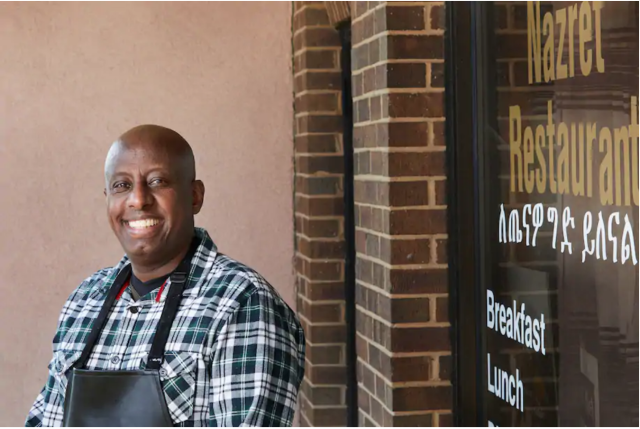The Washington Post
Ethiopian dining is as much about community as food. The pandemic has changed that, for now.
A businessman from Addis Ababa has dined on occasion during the pandemic at Nazret Ethiopia Restaurant (3821 S George Mason Dr. D, Falls Church, 703-347-9911; nazretethiopiarestaurant.com). The man — who is quite wealthy, says chef-owner Endalkachew Mekonnen — usually requests a spot in the corner of the dining room and politely asks the proprietor to keep the tables around him clear of other customers. He tries to eat early in the evening, or later at night, to avoid what passes for a crowd during the coronavirus pandemic.
“He tells me I can charge him any amount but usually we don’t charge him” for the special accommodation, Mekonnen says. Instead, the businessman tips well, frequently handing the owner a C-note for his troubles.
Say what you want about the entitlement of the rich and their ability to bend the world to their will with the flash of a little cash. But when it comes to the warmth, culture and exchange of the Ethiopian table, this businessman is as bereft as the rest of us. The pandemic has cast its shadow over our lives for almost a year now, and it has been particularly cruel to the restaurant industry. I’d argue, though, that few cuisines have suffered as much as the one from East Africa — the one that’s so prominent on the streets of Washington and in many of its suburbs.

Chef-owner Endalkachew Mekonnen at Nazret. (The Washington Post)
—